Just one more go! The science and psychology of destroying your sleep patterns
It’s one in the morning. You should go to bed. Hell, you should already be in bed. In fact you should already be asleep. But you’ve spent the last half-hour on the greatest combo-chaining, multiplier-swelling, highscore-troubling roll of your life and you cannot stop yet. Then, 'one more go later', it’s six in the morning. Three hours later you’ll be in work, pouring coffee down your throat like a dying man presented with the fountain of youth, and hoping that no-one notices that all of your sentences are coming out order wrong in the. But you know what? Totally worth it.
For all the high-falutin' scale and narrative texture of an Elder Scrolls or a GTA, a more modest style of digital amusement often delivers the most catastrophic blows to our basic ability to gauge the passage of time. I’m talking about the one-more-go game. The apparently simple--but in truth densely layered and utterly refined--experience that blends the immediacy of its systems with rapid gratification and a ceaseless need to hit Start again and again and again and again. Geometry Wars. Resogun. Hotline Miami. Super Stardust. Tetris. Bloody, goddamn Tetris.
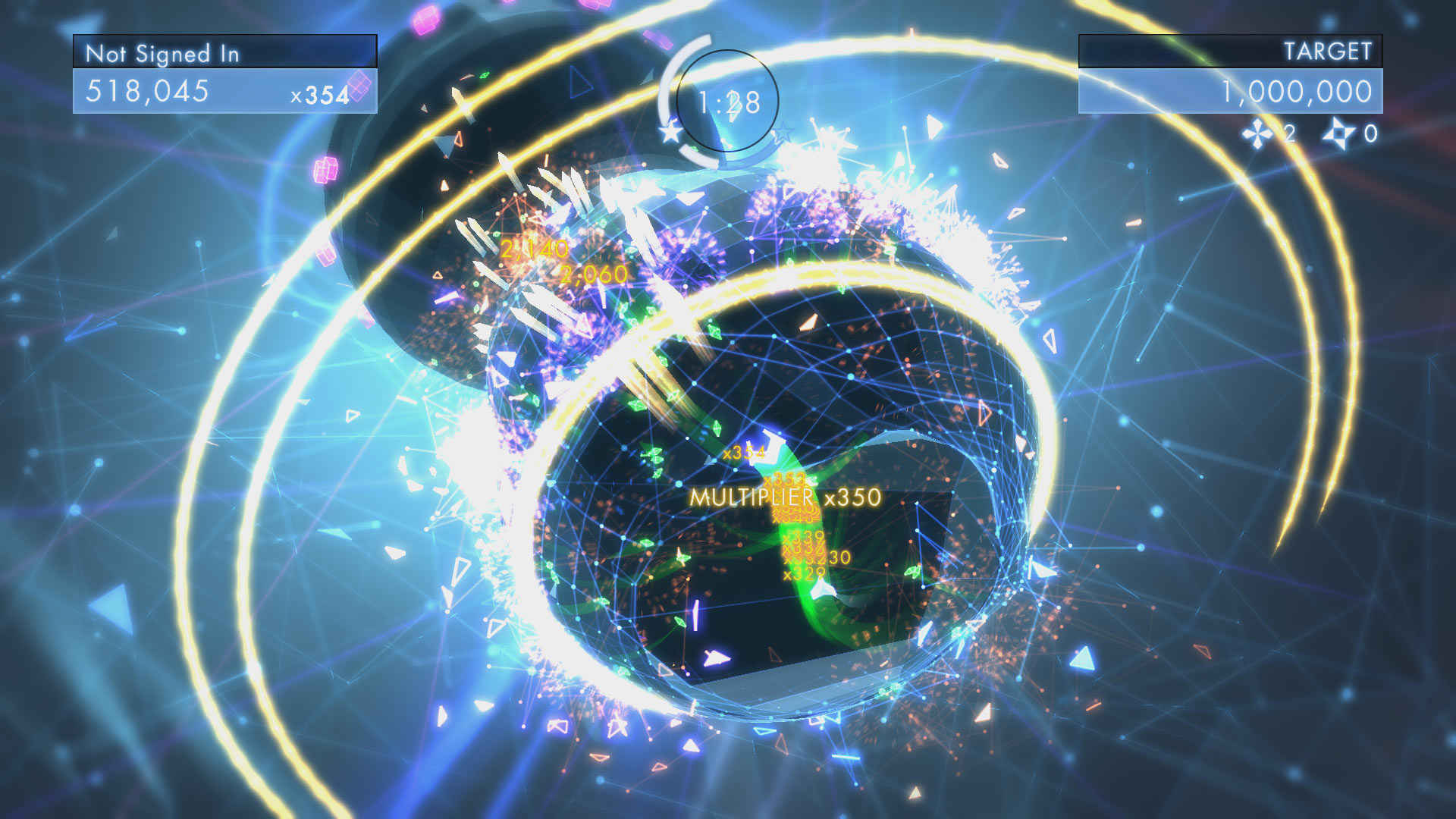
No simple case of stapling a high score to a dangled carrot while whipping the player’s arse with the stinging twig of failure, these games are carefully considered, multi-sensory structures of challenge, psychology and reward. And it all starts, as so many, less wholesome obsessions do, with the initial ‘buzz’.
Craig Howard, Bizarre Creations alum, and now Creative Director at Lucid Games, currently making Geometry Wars 3, explains:
“At a basic level, triggering pleasing aesthetic actions against player interactions is the key. Just think of the satisfaction of landing a punch in Street Fighter. This simple action feels so good, so even if the player fails a fight they still get a buzz in taking part. Great games concentrate on providing positive player feedback in the main player actions. You can just run around in Mario 64 and have fun, even without trying to complete a level… Once the player is in ‘The Zone' they want to stay there, regardless if they have just failed. As gamers we know we have the best chance of winning once we are in this state.”
The Zone’s importance in keeping players engaged is a matter agreed upon by Mikael Haveri of Housemarque, the Finnish developer of Super Stardust HD, and more recently the PS4’s killer launch game, Resogun.
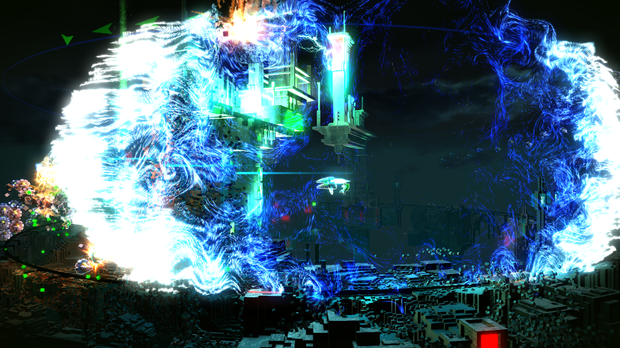
"Getting into The Zone--that is the hypnotizing experience of losing all understanding of one's surroundings and just getting into the game--is a thing we want to recreate in some way for each game. There is no better experience of sedation than this, and I believe it is possible to achieve on all difficulties, depending on the player”
Weekly digests, tales from the communities you love, and more
Ah yes, difficulty. Now that, if you’ll excuse the inevitable, unintentional pun, is a tricky one. Make a game too hard, turn those quick restarts into little more than a fast-track to endless beatdowns, and you’re not going to keep people hooked. But conversely, a one-more-go game thrives on the player’s sense of incremental achievement, right? The moreish challenge, and the notion that if you keep getting better at the rate you currently are, then you’ll have the leaderboards topped and be in bed by midnight (ha!).
“Difficulty is always one of the parts of any game that is tweaked right up until the end, says Howard. “Failure states are usually acceptable when the player understands why they have failed, otherwise it's frustrating”.
But it’s about more than just overcoming a challenge. Keeping a player coming back is really about forging a relationship between them and the experience at hand. “Games are about discovering paths, whether that is one defined by overcoming difficult set challenges, or casually being able to uncover a story to a mysterious world. As long as the player feels that they are progressing, they will enjoy the game. Difficulty has to provide the feeling of accomplishment for the player, providing clear objectives”.
“…Defining a one-more-go feeling is still about the sense of continuity. This starts with easing a player into the loop by letting them explore the gameplay to a degree that they can either fail horribly in a matter of seconds or make it just far enough to feel the satisfaction of success. For example, holding hands is a very slippery road, since you want the player to feel like they are in control and not just dangled along like a puppet. Once the player feels as they can learn a bit more on each "go" and still be driven to try to reach for that carrot at the end of the stick, then we have the beginning of what could become a satisfying gameplay loop. The main incentive of said loop being the pure gameplay… not just an artificial goal, achievement, or virtual monetary gain”.
Indeed, this all ties back into what I said earlier in this article, about the different kinds of compulsion to keep playing different kinds of games. Not all obsessions are created equal. I’m personally always aware of how nourishing and ‘positive’ a game’s means of keeping me hooked might be. For me, that utterly defines the worthiness of an experience.
For example, I’ve never got along well with traditional MMOs, simply because of the nagging feeling at the back of my mind that however compulsive the drive to accrue higher levels and better gear, the primary--and endless--nature of that treasure hunt ultimately makes the experience feel a little hollow. Something like Destiny though, I’m wholeheartedly onboard with. Yes, the search for loot and crafting supplies leads to variants of grinding later on, but Destiny’s emergent, Halo-inspired combat is so endlessly, eclectically rewarding in itself that the game, not the game’s structure, always remains the core focus of the experience.
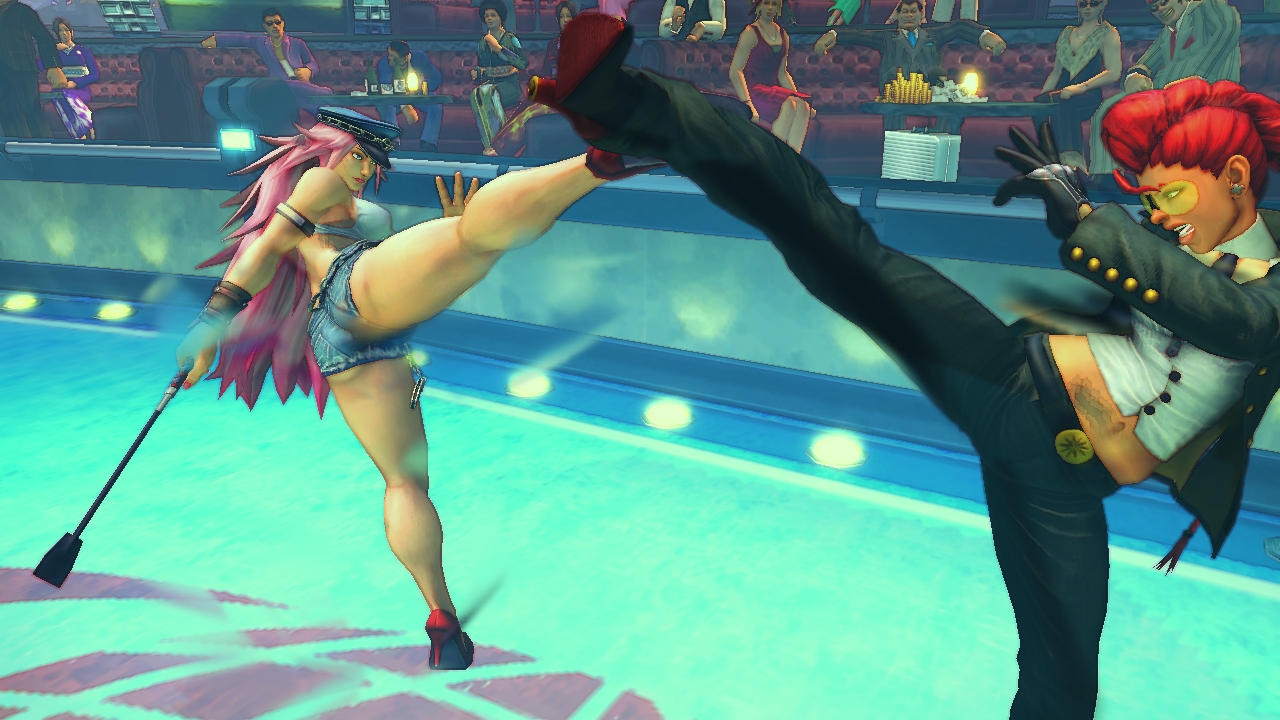
In fact Howard and Haveri’s comments crystalise in my mind the idea that games such as Geometry Wars and Resogun are really the single-player equivalent of the total game purity I find so rewarding in Street Fighter. I’ve written about the unique hook of a good fighting game before, but long story short, the entirely experiential gameplay found there is a very personal dialogue of self-improvement. Driven solely by player’s interactions and learnings with and from each other, unsullied by artificial abilities or distracting rewards. It’s an utterly fantastic experience, driven by nothing more than the experience itself.
But if all that is true, then does it not make the bells and whistles of the one-more-go game--high score tables, online leaderboards, additional game modes, and the like--somewhat unnecessary? Is the high score itself not simply a macguffin, the superficial garnish on top of a an already moreish gameplay experience? Not necessarily. And again, it all comes down to that relationship with the game.
“As long as you have 'actions-result-reward' in your gameplay loop it will be solid”, says Howard. “Usually a game has many loops within itself, and it is important that they all make sense to the player as they are uncovered as the game progresses”. But scores are a damnably important, and highly economical, way of setting the player on that initial journey of exploration…
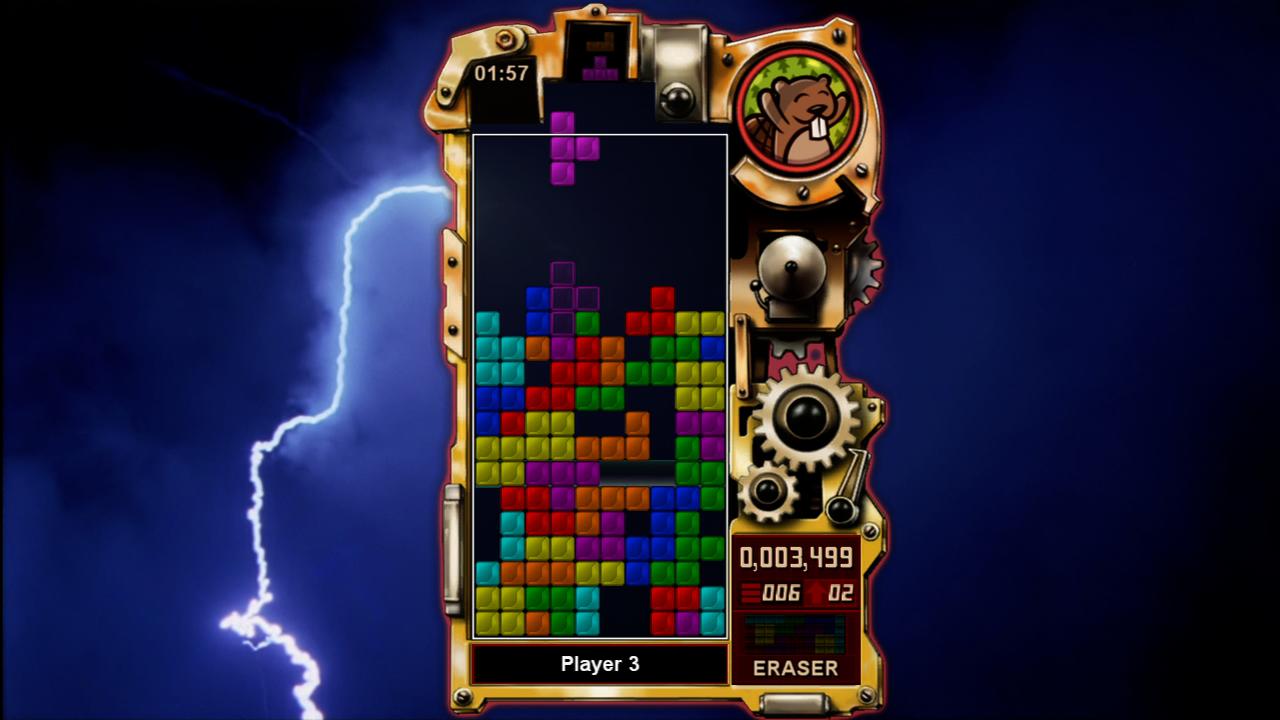
“High scores are simple yet powerful ways to show a clear objective for the player. They can feel arbitrary to some players, and that is why using friends leaderboards is a more powerful tool. High scores alone are not going to make players get addicted to a game, they just provide a concise way of judging your skill”.
Indeed, with personal development and nuanced discovery so inherent to the joy of a one-more-go game, yett easy to miss amid the neon assault of a red-eyed ‘late one’, the simple, objective clarity of the high score is an important, hassle-free way of gauging one’s progress.
Haveri agrees on the high score’s resonating structural importance, but thinks that more nuanced, more personalised ways of using it to express more meaningful achievements are the future:
“I think the modern gamer might not even think of high-scores per se, rather just in general terms like achievements, challenges beaten, K/D ratios. All of these matter and are a big part of what makes the game addictive. As a company we approach it a bit differently and would like to see more happen considering innovation in this area…
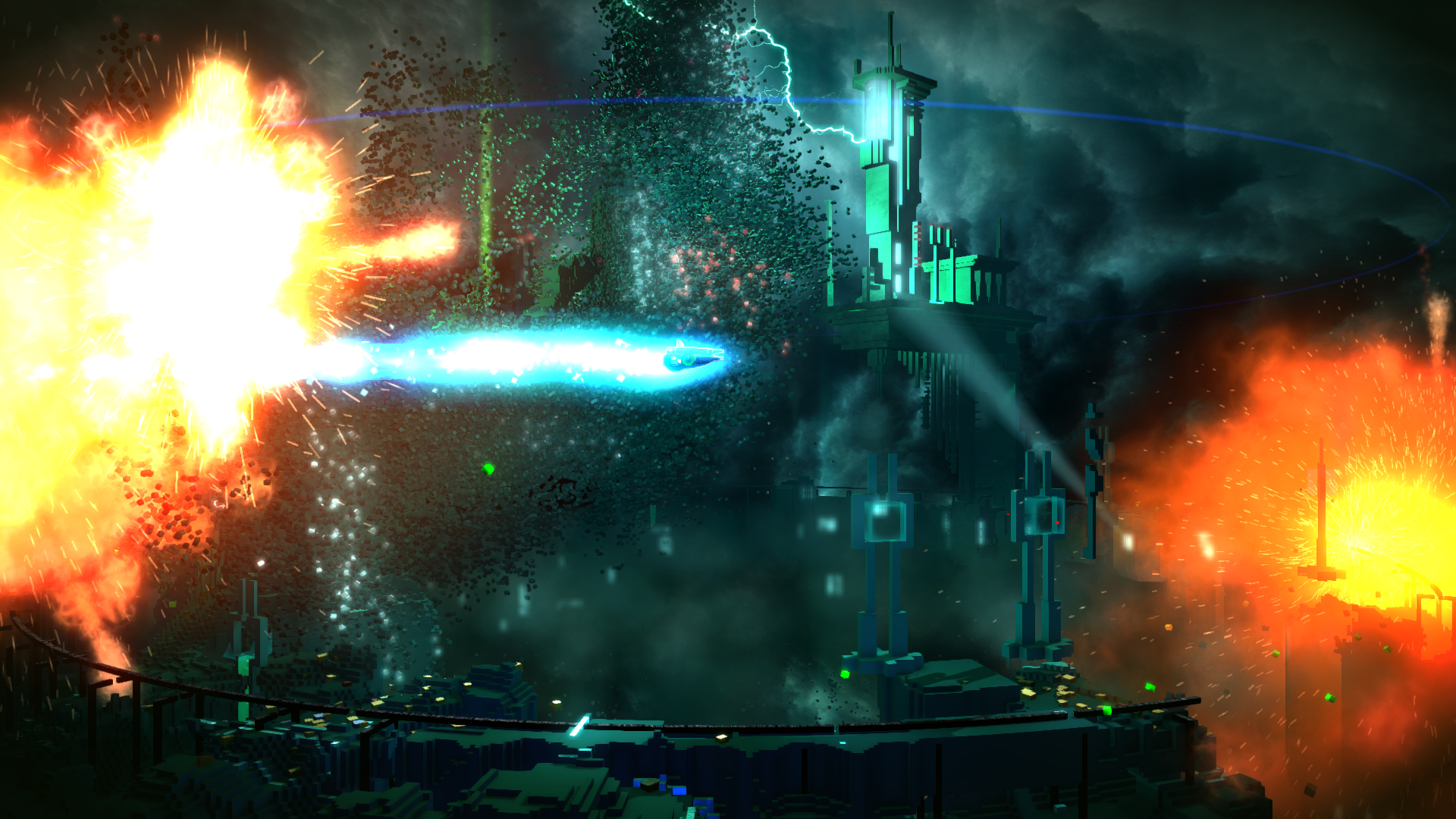
“A number one high-score on a local arcade cabinet used to give you bragging rights in your neighborhood. Now those leaderboards are global, and #8057 is the best you can do, and that doesn't sound as cool. Of course we have friend leaderboards and so on, but I think we are witnessing the revolution of social gaming. We need to have wider systems of integrating scoring across platforms and maybe even locally. I need to know if I'm the best player in Helsinki, maybe even having my Resogun score shown on an arcade cabinet in my neighborhood and so on”.
But the important point is that however complex and creative the periphery of the game, however cleverly designed the picture frame, the robustness and reward of that central, experiential relationship will always be key. What are the most important factors in creating that? To Haveri, it’s simple.
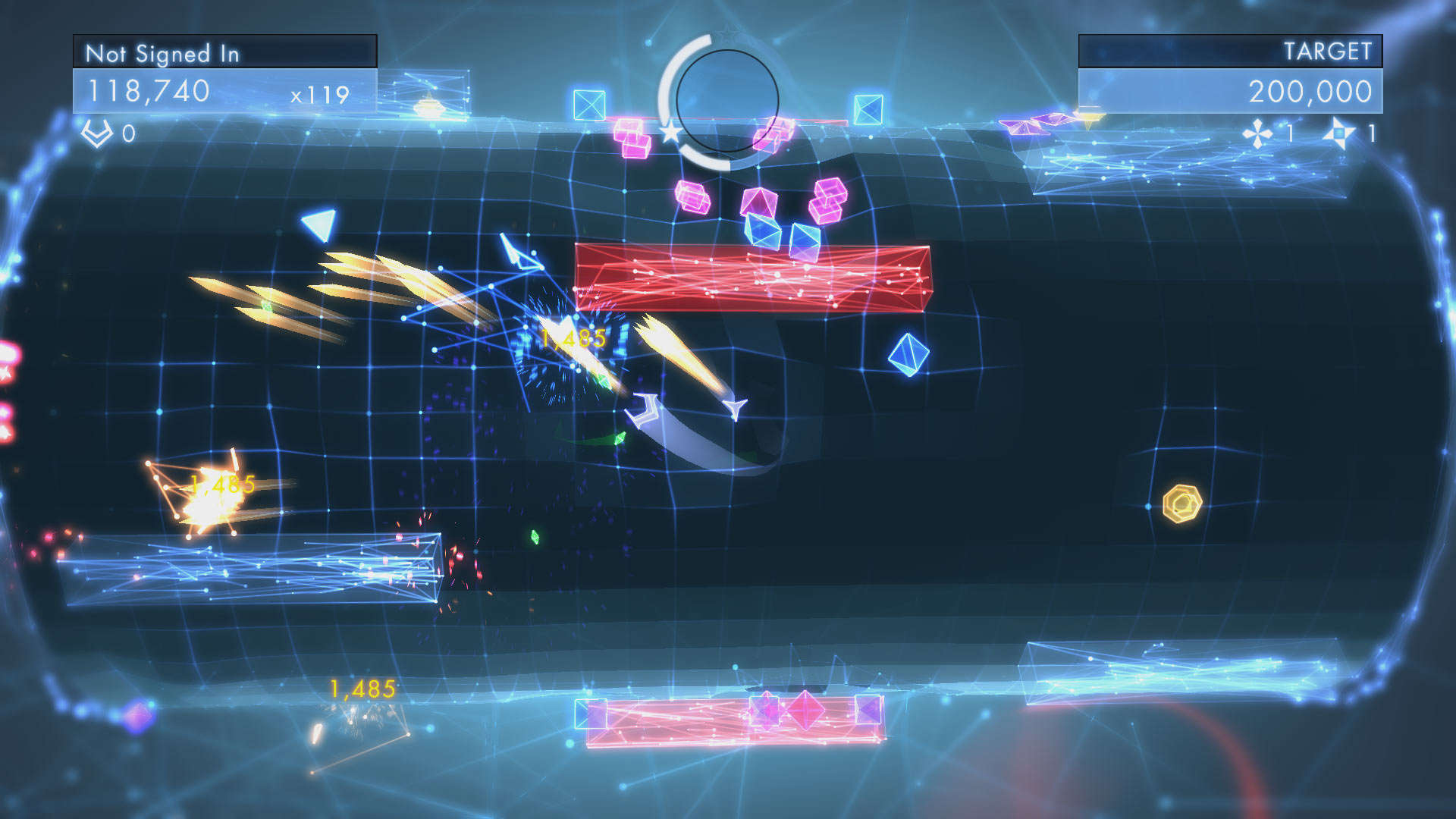
“Iteration and fun. Having fun and iterating on it. Mainly those two. We mostly stem our inspiration from a lot of the classics and modern masterpieces, so for Housemarque there isn't a rulebook of sorts for the perfect game design. Understanding the underlying emotional impact of what we want to create with a new experience is usually based on experiences we've had before and then trying to perfect and combine those…
“We've found out that iteration is the main constant, and taking time to understand feedback is sometimes more important than knowing for the truth for yourself. Balancing is something that we take very seriously, but it must always lead to and stem from having fun”.
Sounds good to me. With Geometry Wars 3: Dimensions set for release over the coming months, and Housemarque's next shooter, Alienation, now well into development, there's plenty more highly-caffeinated excitement on the horizon. I for one will be jumping in with renewed gusto, however disastrous the mornings after that gusto might almost definitely be.



